Part Three
– A historical overview of the multifaceted Albanian-German contacts and exchanges over the years –
Memorie.al / “Bonn, through its exports to Albania, certainly does not reap any great profit. But in the political aspect, in the case of Albania, ever since the Chinese withdrew, a large space has been left unexploited. The social and political order of Albania certainly does not correspond to Western perceptions. This order, however, does not differ much from that of other socialist countries, with which Bonn has long built good relations and contacts. In its policy to maintain the ‘status quo’ in the Balkans as much as possible and thus limit Moscow’s influence as much as possible, Bonn primarily relies on Yugoslavia. But we cannot raise any doubt that an Albania completely independent of Moscow contributes to the stability of the Balkans, just as an uncommitted Yugoslavia does. It would have been a serious political mistake to continue to neglect this fact for a long time.”
Continues from the previous issue
This is one of the determinations that are kept as a leitmotif of the Germans, to precede their concrete steps for the normalization of relations with Albania. It must be stated, on the other hand, that Albania also knew very well that, although it already had normalized and a broader relationship with the former GDR, the key role in all relations with the Germans would only be played by Bonn and not East Berlin.
Also, in Tirana, the idea had long been articulated that the German people had their inalienable right to live in peace and united which to some extent contradicted the treaties up to that time and was also considered a taboo.
But this attitude of Tirana, which it must be said, in this case found a very good reference for the fulfillment of the Albanian national aspirations that were again taking shape in the new realities after the death of Tito, had nevertheless reached the ears of the West Germans, who saw the achievement of reunification in a single Germany as a great constitutional obligation and thus valued even the smallest support coming from a country like Albania to the maximum.
On the other hand, Albania’s non-involvement in any military-political bloc was undoubtedly seen as a good omen for Bonn, as far as its goals to keep Moscow and Soviet influence in the region as far away as possible was concerned.
In fact, as emerges from the aforementioned finding in the German media, as early as 1982, the FRG, but also the entire West at that time, relied primarily on Yugoslavia (however, no longer Tito’s) to achieve this goal, but Albania could not be left out of attention, as had been done until now.
Meanwhile, for Albania at that time, such references are also found on the pages of German written media and archival and study documents, which certainly make you, think of a certain fear or distrust of the Albanians, due to the low standards they had in democracy and also in their mentality rooted for centuries. Thus, in the wake of what we just said, they wrote:
“Does anyone know more about the contribution that the Germans have made over the centuries to the rise of national consciousness among the Albanians and to the state constitution of this country? When the word Albania is sometimes mentioned in Germany, it revolves around a context that is somewhat confusing.
Albania seems like a country where religion, thieves, and dogs, were even wiped out by harsh and violent means; as a stubborn country that has quarreled with all the great powers of this world, starting from Washington to Moscow and Beijing, and that has preferred to throw itself into total self-isolation.
As a country where the class struggle is constituted by law and where blood feuds are still practiced, as a promoter of irredentist movements that, for example, threaten the existence of its neighbor, Yugoslavia, or as the ‘ideological homeland’ of the pure Marxist-Leninist groups of the Federal Republic, etc.”
It is understood that extremist leftist groups such as the “Red Army” or other similar groups, which were involved in acts of terror in the FRG during the late seventies, had somewhat blackened the image of Albania, as their perceived sponsor, or at least as their “spiritual ideological homeland.”
Furthermore, in their evaluations of this most recent step, that is, the establishment of relations between the two countries, the Germans emphasize: “Albania is also small and its population is small in number, while its industry is backward and its economy is not at desirable levels. In foreign policy, Albania seems to have a secondary role, isolated from the rest of the world, which in turn seems to have intentionally sidelined it. Is such a seemingly isolated country an insignificant partner? Is it worth having diplomatic relations with it?”
These are some of the questions that arise for this country, with which the Federal Republic of Germany is now establishing diplomatic relations. One thing is certain: there was once a time when Albania was even more unknown and even more foreign to the Germans than it is today. These times are not even very far away. And if the newly established relations will help the Germans to know and understand the Albanians-the descendants of the earliest inhabitants of the Balkans- better, then they have essentially achieved their goal.
On his first visit to Albania, Franz Josef Strauss left empty-handed, and not even an empty promise for the establishment of formal official relations could be obtained from the Albanian leadership. “…I only paid a courtesy visit to the Albanian Deputy Prime Minister, Manush Myftiu. It had no political significance. My stay in Albania was mainly limited to some visits to various historical and archaeological centers of this strange country.” This is what he would say about his first visit to “Bild Zeitung,” on August 21, 1984, for example, immediately after his first visit.
Meanwhile, only eight months after his first visit to Tirana, Enver Hoxha died and things in this aspect seemed frozen again, as the Albanians, strangely, still insisted on the same point, despite the many signals that the establishment of relations between Tirana and Bonn was now only a formality. From the beginning of 1986, the German and foreign press began to write about the meeting in Vienna between the German and Albanian representatives.
The German media had considered that meeting a success, as Tirana’s promise to give the OK to the establishment of these relations had been obtained in advance. However, things would not go smoothly and for the umpteenth time, the “long-drawn-out telenovela of claims for reparations” would start again, which the plenipotentiary head of the Albanian delegation for the talks with the German side in Vienna, Sofokli Lazri, articulated strangely, as if in smoke.
So the meeting, or rather the meetings in Vienna, would close once and for all without any result, and the relations would be established only after 18 months, when much had changed in Germany’s objectives and concepts, shifting Albania several floors down on its political action agenda.
This, moreover, would become more evident in the years that followed, as major events of historical proportions would happen for Germany, but also for Albania and all of humanity. The Berlin Wall would be torn down, from which, in a way, even Albania could not escape.
STRAUSS’S VISITS, A CHRONICLE OF AN UNANNOUNCED FAILURE!
On May 19, 1986, a little more than two years after his first visit to Albania, Franz Josef Strauss “landed” at Rinas airport in a small plane, which he personally piloted. This was different from the first time, when he had arrived in Albania from the border with Montenegro, i.e. Yugoslavia.
He had with him what would later be called the “Lion of Bavaria,” his pupil, Edmund Stoiber, who would then climb the career ladder and becomes the Prime Minister of the state, and would rival Gerhard Schröder for the post of federal chancellor years later.
Although in an interview for the newspaper “Bild” on May 20, 1986, he stated that; “…the time has now come for the establishment of diplomatic relations between the two countries, as Albania has given up its demand for reparations,” again in the talks with Prime Minister Çarçani, the previous claims surprisingly appeared, arguing them with the fact that; “Albania, along with the establishment of diplomatic relations with the FRG, also seeks a moral satisfaction, related to its legitimate right to the issue of recognizing the damages it suffered from the Second World War.”
Seeking an explanation for what the Albanians meant by the term “moral satisfaction,” the conversation then seemed to annoy Strauss, who also brought his own project, which was then to become a reality, within the framework of German-Albanian economic cooperation.
Thus, the Albanian government seems to have sidelined the issue of relations, which, as we said, could not be successfully concluded in both of Strauss’s visits, but focused only on the “Strauss project,” immediately listing an emergency list of economic needs that the Bavarian government was supposed to finance.
It spoke of a long-term project covering the period up to 2020, the value of which varied according to the progress of the project, from 800 million to 2.5 billion German marks. But all this seemed like a comedy, as the Albanians received a slap in the face from the federal government, which could not accept providing such a large aid without first establishing diplomatic relations.
These relations were established only in September 1987 (practically in October), almost a year and a half after Strauss’s second arrival in Tirana. Meanwhile, the first German offer to establish relations with Albania had been articulated a full eighteen years earlier. By now, Albania had lost a lot of time, and the world was on the verge of change. It had caught the last train, but it was too late, despite the great hopes of the Albanians.
BASHKURTI: ALBANIAN DIPLOMACY, MYOPIC, STRAUSS PREDICTED THE COLLAPSE OF THE SOVIET UNION
After the death of Enver Hoxha, many analysts rightly note that interest in Albania increased greatly, especially from Western countries. But the Albanian political and diplomatic elite was at that time very rigid and conservative, as it had been cut off from contact with the outside world for years.
“Because the policy of Enver Hoxha’s state was self-isolating,” notes Ambassador Lisen Bashkurti in one of his volumes on the developments of Albanian diplomacy, at that time also a close observer of those developments, “this was then reflected in diplomacy. It was very difficult to reactivate other lines, instruments, and people to break through this path. But there is no doubt that the most important moment that clearly proves the Western initiative towards our country at that time is and remains the interest of Federal Germany.”
“In fact,” Bashkurti notes in his work, “the interest of Strauss and Germany was not limited only to Albania. First of all, their interest was in Yugoslavia. The strategic goal of Federal Germany was to unite the two Germanys, separated after the Second World War.
The basic obstacle to achieving this goal was therefore the Soviet Union, so this country had to be weakened not by offensive and visible means, but in a more subtle way. This would be achieved through two paths: its internal weakening from an economic point of view, but also by breaking away its regional allies.
It can be easily stated that Strauss had abundant information about the political developments in the Soviet Union. He had reason to believe that the internal political and economic degradation had begun. But this opinion was not found among the Albanian side, which still believed that the USSR (Union of Soviet Socialist Republics) was a great global power that continued to strengthen, becoming more aggressive in international relations, notes Dr. Lisen Bashkurti.
WHAT DID STRAUSS REPRESENT?
Strauss himself was a representative of a conservative political current, which was in conflict with the ideas defended by a more liberal and more tolerant current towards the Soviet Union and its satellites, represented mostly by Willy Brandt or Hans Dietrich Genscher, who was the Minister of Foreign Affairs in the federal government led by Helmut Kohl.
He was in favor of “touching the Soviet zones of influence,” let’s say, trying to attract as many Central and Eastern European countries as possible, which he felt saw Germany as the example of the real economic and political partner of the future.
GERMANS AND ALBANIANS IN 1987: WE ARE OF THE SAME OPINION ON POST-TITO YUGOSLAVIA
Another issue that touched the interest of both sides during Strauss’s visits was post-Tito Yugoslavia, where this time there was a complete convergence of views between the Bavarian Prime Minister and the line of Albanian politics at that time.
In this case, both sides believed that post-Tito Yugoslavia would very soon lead to the creation of great tensions fraught with ethnic conflicts, but also the great problem that appeared on the horizon, of the interests related to the payment of the large debt and credits that Yugoslavia had received from Western countries and that was facing the insistent demands of the International Monetary Fund.
“In its policy to maintain the ‘status quo’ in the Balkans as much as possible and thus limit Moscow’s influence as much as possible, Bonn primarily relies on Yugoslavia. But we cannot raise any doubt that an Albania completely independent of Moscow contributes to the stability of the Balkans, just as an uncommitted Yugoslavia does. It would have been a serious political mistake to continue to neglect this fact for a long time.”
ALBANIA, “THE DARLING OF EUROPE”
The Germans’ assessment in 1987
In a historical perspective, Albania appears as a “darling of Europe,” because it was only in 1912, i.e. among the last, that it managed to declare independence on the old continent and thus be constituted as a national state.
Descendants of the oldest inhabitants of the Balkans, very ancient even from the examination of their history, we could reach three basic findings to determine their character: the ability to adapt and combine with a natural intelligence, distrust of foreign masters and their “protectors” and finally the ability to quickly and completely change, according to the interest dictated by the circumstances, former allies and partners.
These qualities were presented from the very beginning by the newly founded Albanian state, and there were plenty of reasons to behave in this way. Its neighbors had raised territorial claims, the realization of which would only be possible through the detachment of Albanian territories and their division among the neighbors. The efforts made by themselves, the end of the war, and the support wisely gained from the League of Nations (at that time newly founded), saved Albania from an even more sinister fate.
Albania is small and economically insignificant, but a truly independent Balkan country, whose political weight is proving to be a potential factor of stability in the region. With the newly established relations with it, the Federal Republic of Germany also has one more opportunity to positively influence the fate of this natural “corner” of Europe. / Memorie.al




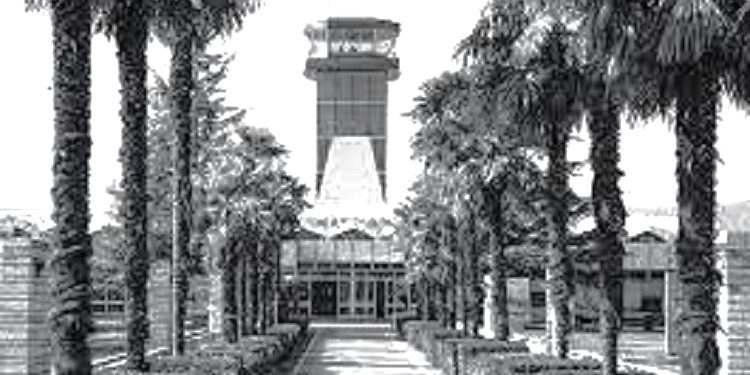

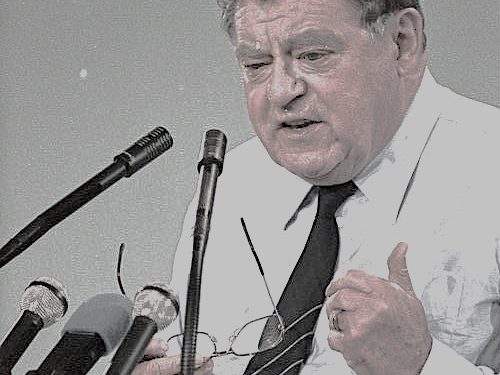
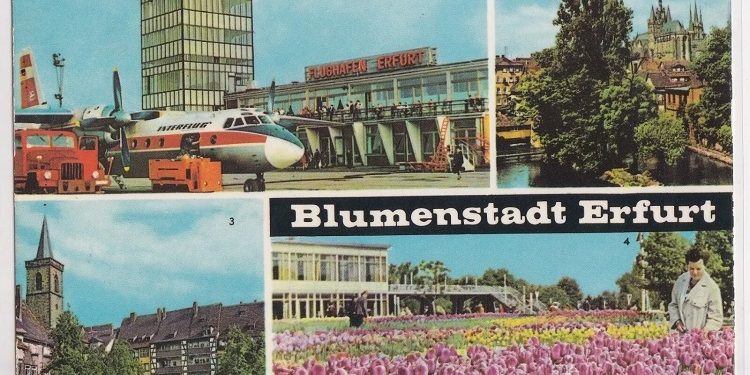
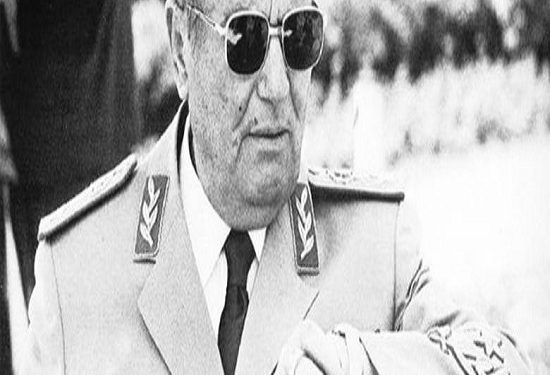
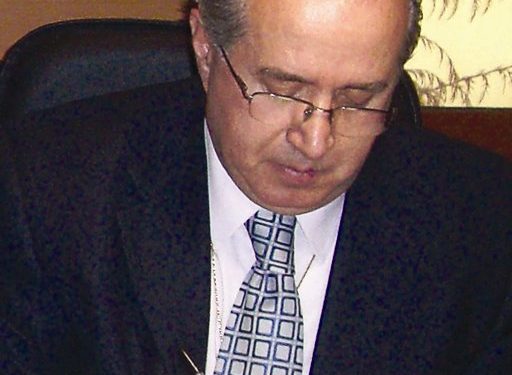
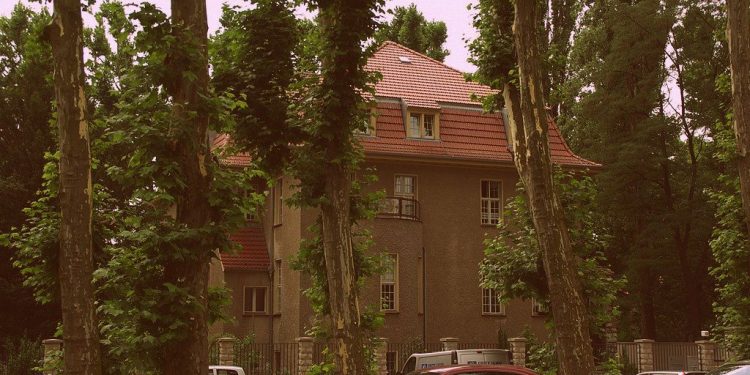
![“When the party secretary told me: ‘Why are you going to the city? Your comrades are harvesting wheat in the [voluntary] action, where the Party and Comrade Enver call them, while you wander about; they are fighting in Vietnam,’ I…”/ Reflections of the writer from Vlora.](https://memorie.al/wp-content/uploads/2025/06/admin-ajax-4-350x250.jpg)


![“The ensemble, led by saxophonist M. Murthi, violinist M. Tare, [with] S. Reka on accordion and piano, [and] saxophonist S. Selmani, were…”/ The unknown history of the “Dajti” orchestra during the communist regime.](https://memorie.al/wp-content/uploads/2026/02/admin-ajax-3-350x250.jpg)
![“In an attempt to rescue one another, 10 workers were poisoned, but besides the brigadier, [another] 6 also died…”/ The secret document of June 11, 1979, is revealed, regarding the deaths of 6 employees at the Metallurgy Plant.](https://memorie.al/wp-content/uploads/2026/02/maxresdefault-350x250.jpg)

